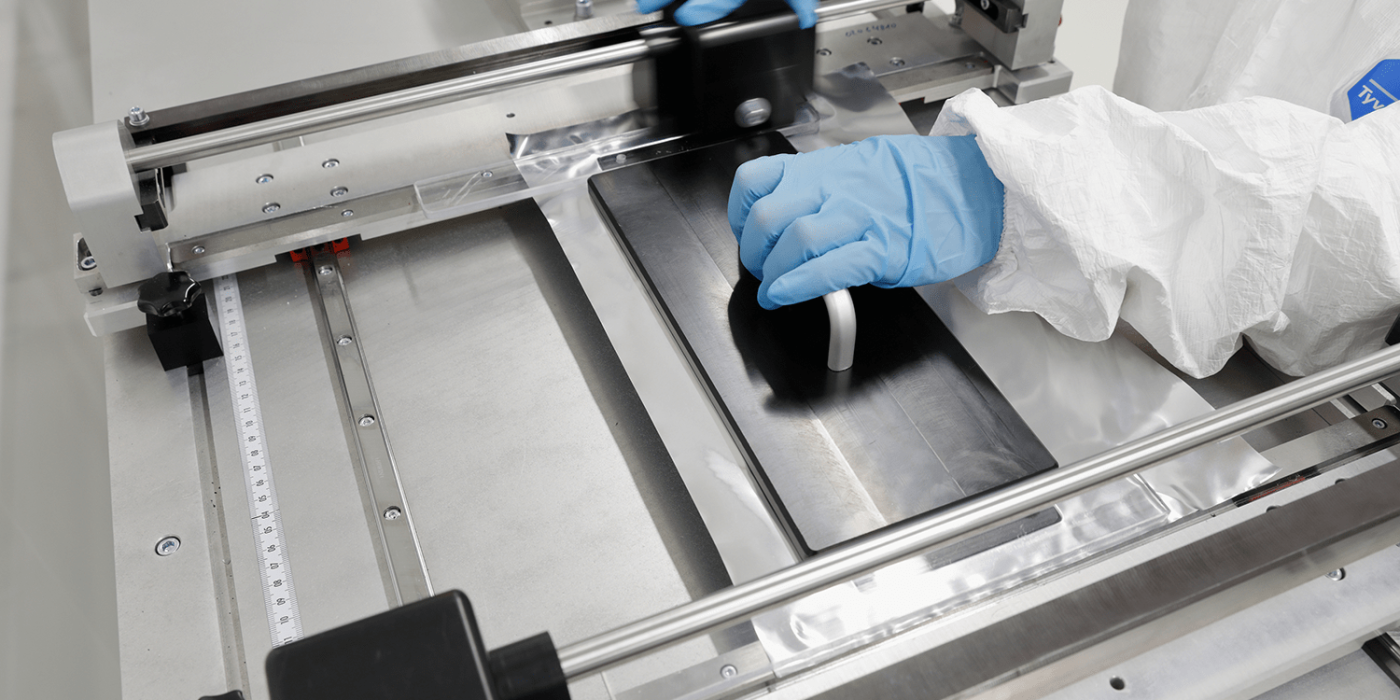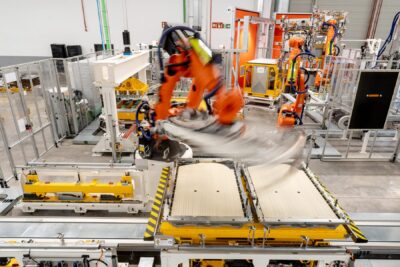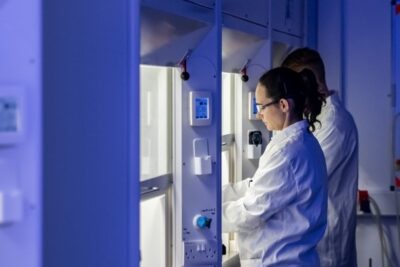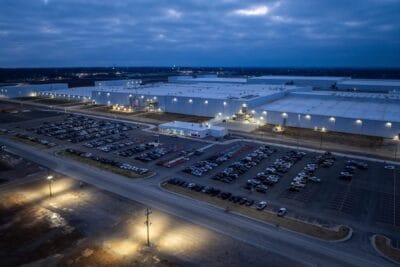Volkswagen wants to use dry coating in large-scale production
Volkswagen is aiming to bring a new production process for electric car batteries into large-scale production. A dry coating is to reduce the energy consumption in the production of battery cells by 30 per cent and lower the costs of electric cars by several hundred euros per vehicle.
German publication Spiegel revealed the car-making giant’s ambitions with reference to Sebastian Wolf, board member of the Volkswagen battery subsidiary PowerCo. The interested in cell production systems comes from Volkswagen’s ambitions to move far up the value chain and produce cells for future electric car batteries in their own large-scale plants.
As Wolf explains, the electrode dry coating method has proven viable in internal tests. PowerCo therefore decided to invest further in the process and install a pilot line in a laboratory near Salzgitter, Germany, where PowerCo is currently setting up its first battery cell factory worldwide. According to Wolf, Volkswagen has been researching the new process with partners since 2020, and it is to be applied to millions of battery cells by the beginning of 2027. The project costs to date are said to amount to around 40 million euros.
A number of companies and research institutions worldwide are already working on dry-coating processes for electrodes. As a central component of the battery, these usually consist of a metal foil covered with a thin coating. The coating contains the active components that are responsible for energy storage. Usually, the coating process is carried out wet-chemically with slurry preparations, whereby a paste is produced from active material, conductive blacks and binders together with a solvent, which is first used to create a wet layer on the metal foil. Huge plants with very long drying distances are needed for the solvent to evaporate again afterwards. These steps would make dry coating superfluous.
Among the very active players in this field is an alliance of Siemens, LiCAP Technologies and BW Papersystems. About six months ago, the trio formed a strategic partnership to manufacture and market such equipment for the battery cell industry. Tesla is also working on dry coating for its large 4680 cells. Most recently, it was reported that Tesla can dry coat the anode but is still struggling with dry coating problems on the cathode.
Volkswagen, meanwhile, is already thinking ahead when it comes to future production systems. In 2021, the company invested in the US battery start-up 24M Technologies, which goes one step further than the dry coating process with a semi-solid process. Volkswagen has been a licensee since 2021 – and specified at the time: “In the future, significant cost optimisation in battery production will be achieved by reducing the use of materials and eliminating several steps in the conventional production process. To this end, a new Volkswagen subsidiary will further develop and scale the technology on the basis of 24M’s patent rights for automotive applications.”
At the time, the company listed a reduction in production space of up to 40 per cent, significant savings in investment, more efficient product recycling and an improvement in the CO2 balance of battery production as “potential benefits” of the solid-state technology. The introduction of the process into large-scale production was planned for the second half of the decade, it was said at the time. Whether this planning still holds, is not certain. After all, according to the very latest information, the dry coating process is also to take effect in the second half of the decade.
spiegel.de (in German)





0 Comments